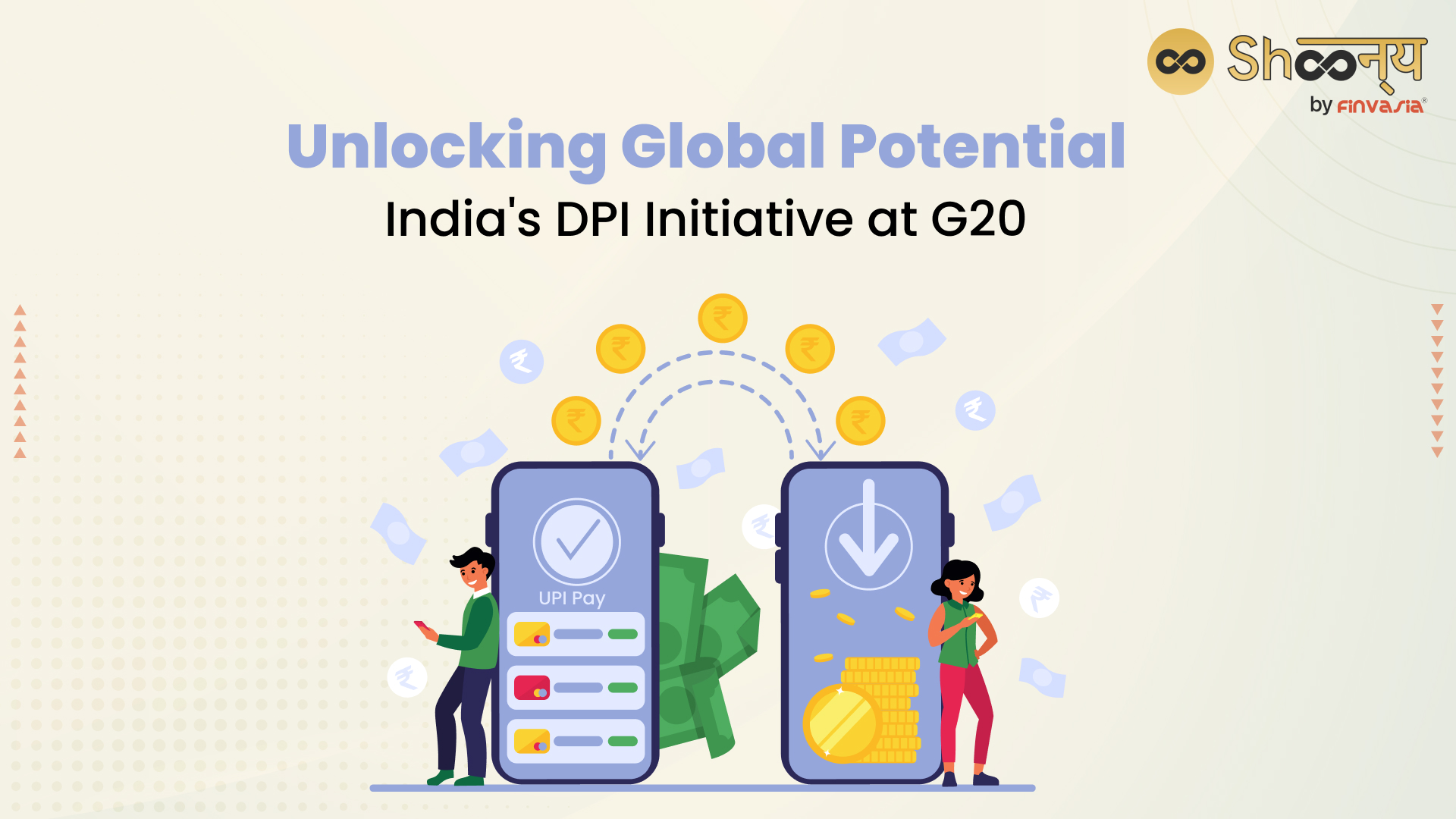In a rapidly evolving digital landscape, India is making a compelling case for the adoption of Digital Public Infrastructure (DPI) at the G20 summit. The G20’s Digital Economy Working Group (DEWG) has set its sights on advancing digital systems and infrastructure globally, and India’s contributions in this regard are making waves. Let’s delve into the key aspects of India’s DPI initiative and its significance on the world stage.
Key Highlights
- India champions Digital Public Infrastructure (DPI) at the G20, fostering global digital collaboration.
- DPI: The virtual backbone of a nation’s digital ecosystem, driving online services and interactions.
- Aadhaar, UPI, and DigiLocker exemplify India’s success with DPI, inspiring international adoption.
- DPI’s promise lies in global interoperability, breaking down digital borders for international cooperation.
- Cybersecurity and data privacy challenges underscore the need for responsible DPI implementation.
- India’s G20 presidency showcases leadership in digital innovation and international cooperation.
- The One Future Alliance, addressing climate change, is a flagship initiative of India’s G20 leadership.
- India empowers inclusive economies through DPI, exemplified by initiatives like Aadhaar and UPI.
- A thriving Indian economy and modernization in defense are key aspects of India’s G20 influence.
What is DPI
DPI, which stands for Digital Public Infrastructure, represents a revolutionary concept that lies at the core of a nation’s digital landscape. Picture it as the virtual infrastructure that forms the foundation for a wide spectrum of online services and interactions, akin to how physical infrastructure supports our everyday lives.
Within the realm of DPI, you’ll encounter a diverse array of components. These include robust digital identification systems such as Aadhaar, efficient payment gateways like UPI, and secure digital lockers for document storage, exemplified by DigiLocker. These elements synergize to fashion a seamless digital realm where citizens can effortlessly access services, conduct transactions, and securely store vital documents.
What truly sets DPI apart is its potential for fostering global interoperability. Essentially, it aspires to dismantle the digital barriers that often separate nations, enabling services to transcend international borders. Imagine it as a network of digital bridges connecting countries, thereby promoting international cooperation and catalysing economic expansion.
Nevertheless, like any pioneering technological advancement, DPI is not exempt from challenges. The spectre of cybersecurity threats and the importance of safeguarding data privacy loom as potential stumbling blocks on this digital journey. Consequently, as we forge ahead into this digital frontier, it becomes paramount to tread cautiously, navigating these risks with wisdom to ensure that the advantages of DPI are harnessed securely and ethically.
Pioneering DPI for Global Prosperity
India’s Aadhaar and Unified Payments Interface (UPI) are shining examples of successful public DPI services. With over a billion users relying on these systems, India is positioning itself as a torchbearer for other nations interested in embracing DPI. The primary objective is to explore the interoperability of these services across borders, opening up exciting possibilities for international collaboration. However, amidst this optimism, concerns about cybersecurity and data breaches loom large, demanding cautious consideration.
A Year of Deliberations and Crafting
Throughout the year, the G20’s Digital Economy Working Group (DEWG) meticulously convened in various Indian cities, including Lucknow, Hyderabad, Pune, and Bengaluru. These meetings were characterised by careful negotiations and the artful refinement of ideas. India’s G20 presidency represents a pivotal moment for the nation, offering a global stage to showcase its leadership in digital innovation and international cooperation.
The One Future Alliance: A Climate Change Beacon
One of the flagship initiatives of India’s G20 presidency is the One Future Alliance. This visionary alliance seeks to unite governments, industry leaders, and civil society to tackle the pressing issue of climate change. In an era where environmental concerns are paramount, this proposal could pave the way for meaningful global collaboration to address the climate crisis.
Empowering Inclusive Economies
India’s DPI policy recommendations are underpinned by a commitment to fostering inclusive economies and empowering people. The country has identified seven key initiatives that serve as shining examples of best practices in DPI implementation. These initiatives include Aadhaar, DigiLocker, UPI, and eSanjeevani, among others. At the 18th G20 Summit in New Delhi, the Digital India Experience Zone stands as a testament to India’s dedication to the cause.
A Thriving Indian Economy
The growing confidence in the Indian economy is palpable on the international stage. India’s influence and relevance in global affairs are on the rise, and its G20 presidency provides an ideal platform to bolster this prominence. Secretary of the Air Force Frank Kendall has also weighed in on the need for modernization in the Air and Space Forces to counter emerging threats and challenges.
In summary, India’s participation in the G20 summit represents a pivotal moment for the nation. Its push for DPI adoption, visionary climate change alliance, and commitment to inclusive economies underscore its dedication to shaping a brighter, more connected future for the world. As the summit unfolds, the world watches with anticipation to witness India’s leadership in action.
Source- www.moneycontrol.com
______________________________________________________________________________________
Disclaimer: Investments in the securities market are subject to market risks; read all the related documents carefully before investing.

